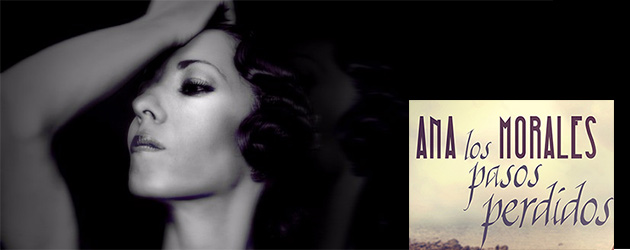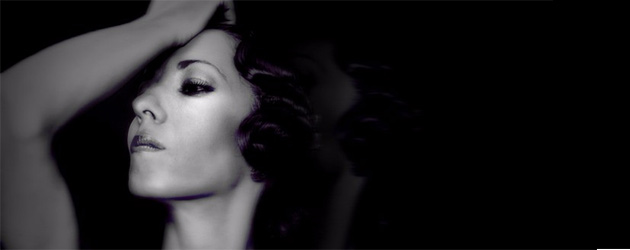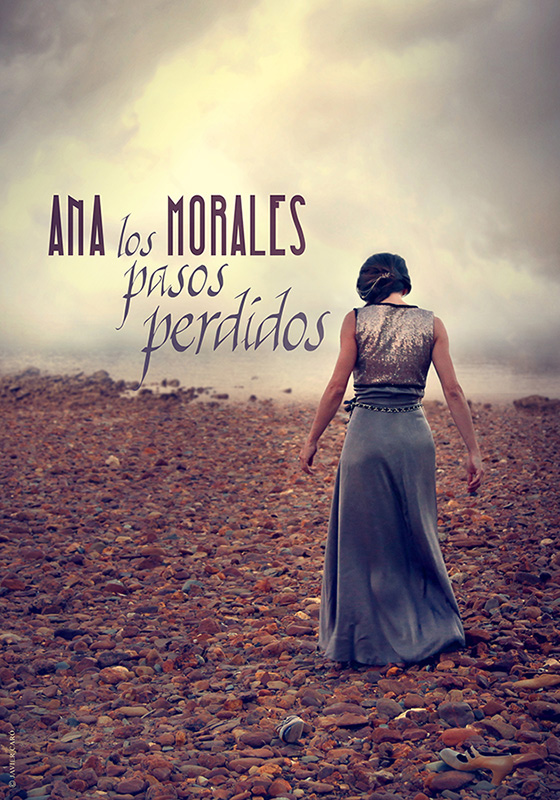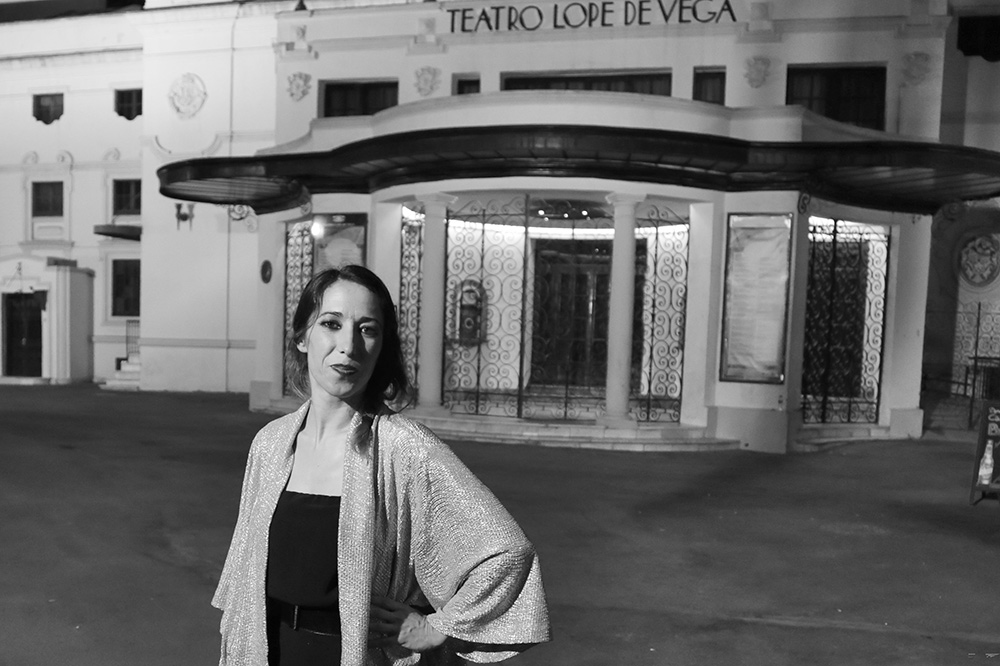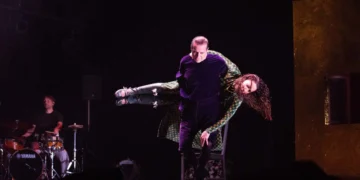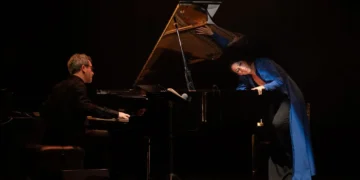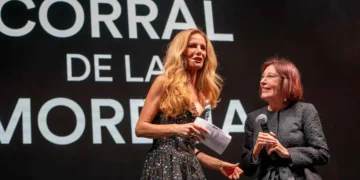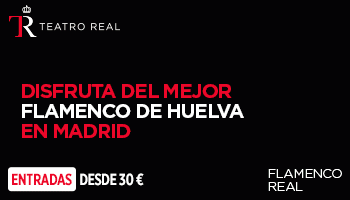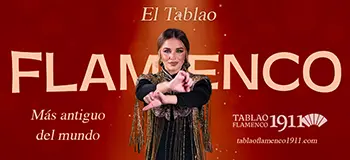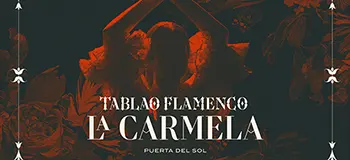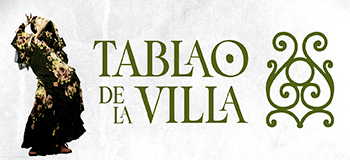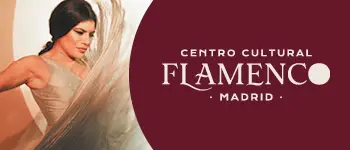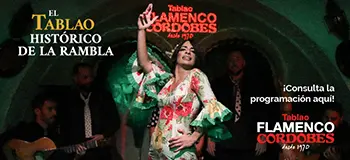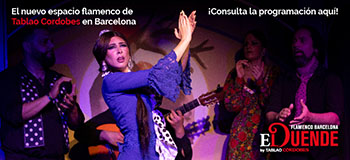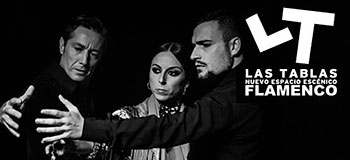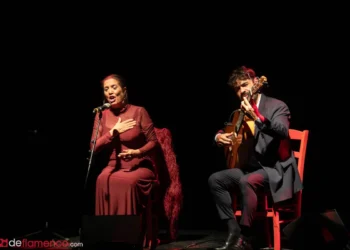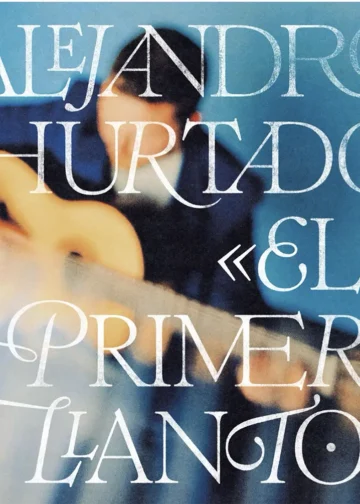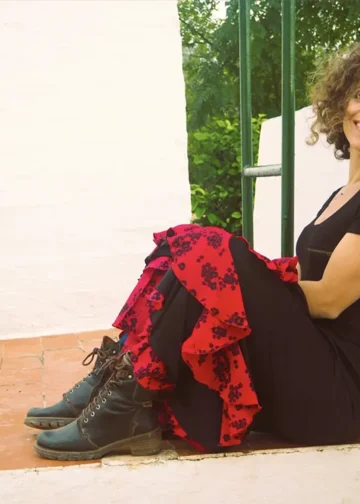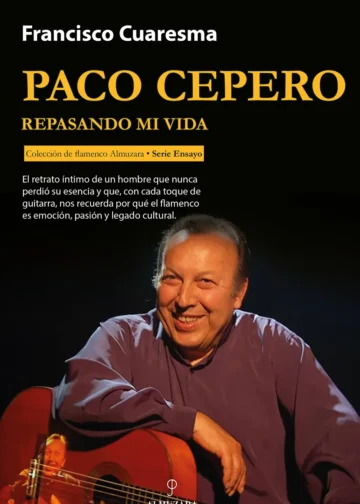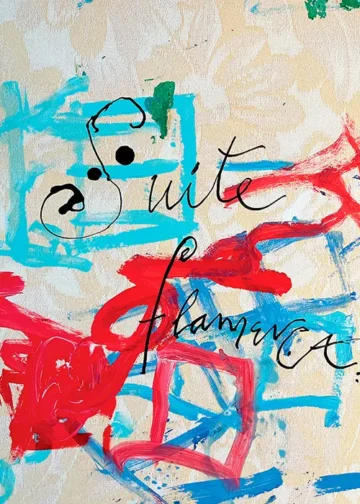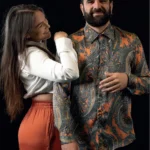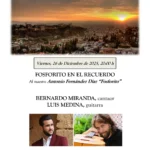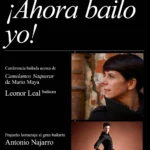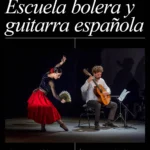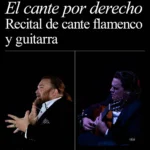Text: Sara Arguijo
The dancer debuts «Los Pasos Perdidos» in the series Septiembre es Flamenco of the Bienal de Sevilla.
“Dancers are in constant conflict about whether we're classic or flamenco dancers»
She arrives in a rush excusing herself for being so stressed for this interview that she would have preferred to do sitting down with a glass of wine, instead of minutes before going on at the Lope de Vega where she participated in the Gala of the Giraldillos of the series Septiembre es Flamenco being held in Seville. But Ana Morales hasn't been idle for many months combining her work with the Ballet Flamenco de Andalucía, with tours abroad along with other artists and rehearsals for the show «Los Pasos Perdidos» which debuts this Sunday at the Don Fadrique Torre, and for which she has taken care of nearly everything, «with the help of David Coria who has been with me in mounting the choreography, the artistic direction and in whatever was necessary», she explains as we make our way down the stairs to the dressing-rooms for the photographic session.
Between one thing and another, the Catalonian dancer is accustomed to hard work. She is that kind of artist who is meticulous, demanding, intelligent and up-to-date who needs to constantly face new challenges on stage. For this reason, she quickly found her niche among up-and-coming dancers, but it took peteneras as she performed in the last Bienal in the show De lo Jondo y Verdadero of Esperanza Fernández, when critics and flamenco fans saw in her the depth required by flamenco. «It's paradoxical, but it brought me good luck» she says about the superstition of bad luck associated with the petenera.
«I needed to stop and take stock of where I am; between a phase that closed, and something that has yet to come»
From that point on, and «knowing I won thanks to artists like Rafaela Carrasco, Esperanza Fernández and Miguel Ángel Cortés who taught me to value myself», Morales was aware of the turning point she was going through in her personal life as well as professional, and that is exactly what she tried to show in this work which is still in the creative stage, and which will, hopefully, soon be finished. «I had the need to stop and take stock of where I am; between a phase that closed, and something that has yet to come» she explains. Thus, in «Los Pasos Perdidos» where the only story line is the essence of her dance, she chose to avoid any role or story that might «get in the way of my own, and put music at the service of my freedom, being whom I really am».
-Because there was a time when you felt constricted?
-Of course, mostly, due to the very limitations we artists put on ourselves, whether technically, or worrying about what people expect of you, or what's good or bad. Here, I can put all that aside, and do whatever I like.
«I can enjoy other kinds of music, but flamenco is the one that allows me to express myself»
– Are we also talking about the fine line that separates classic dance from flamenco?
– Of course, we dancers are in constant conflict about whether we're classic or flamenco dancers. I feel I'm both, because I've aimed to follow both careers at once. The difference is that flamenco is the form that allows me to express myself. I can enjoy other kinds of music, but to express myself I need flamenco. My energy is that of a flamenco dancer.
Of course she maintains that nothing in her past was in vain, and that probably every step taken was necessary to «be able to stop thinking in order to start feeling». In any case, she sees her profession as a struggle that demands she drive herself all the time. «The only thing that makes me dizzy is the expectation. It's positive, true enough, that people will be interested in whatever you offer, but it's a responsibility», she says when asked by her show and that of Pastora Galván, are the only ones sold out.
Now she must await the response of an audience that «is so strong, and has so much to say about a show, that it's capable of changing the whole meaning», she points out, adding «I'd be satisfied if people could be moved in some way».
Descubre más desde Revista DeFlamenco.com
Suscríbete y recibe las últimas entradas en tu correo electrónico.


